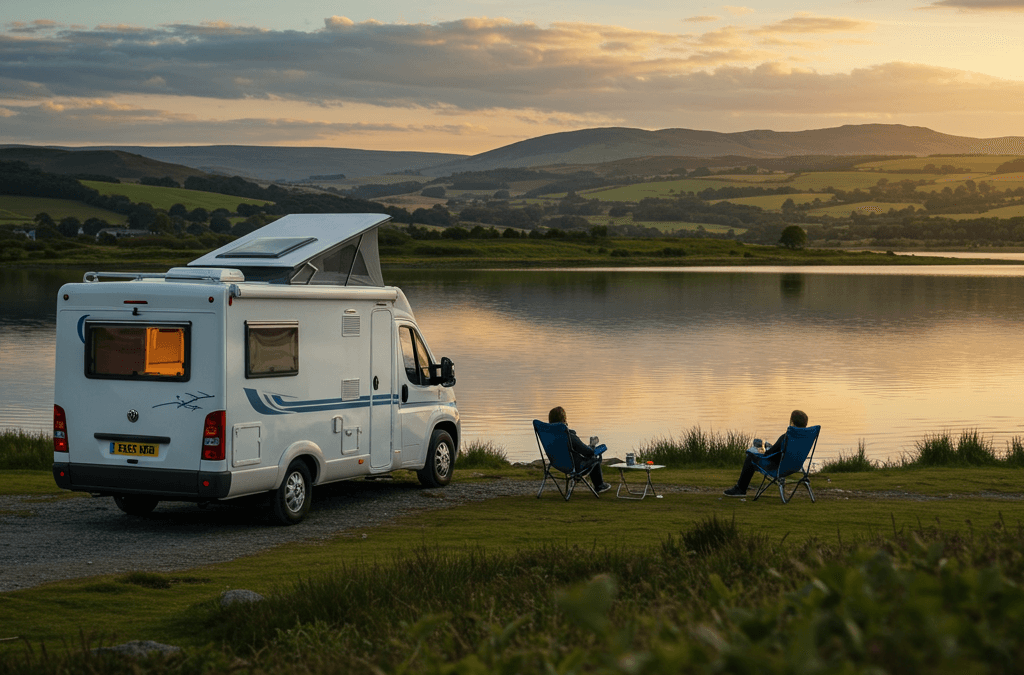Understanding Wild Camping for Van Enthusiasts
Wild camping holds a special place in the hearts of us van dwellers. There’s nothing quite like waking up to a magnificent sunrise in a remote location, with nothing but nature surrounding you. As passionate advocates for the van lifestyle at The Van Club, we’ve seen firsthand how wild camping enhances the travel experience. However, navigating the legalities and ethics of wild camping in the UK requires careful consideration.
The freedom of parking your home-on-wheels in beautiful, secluded spots comes with significant responsibilities. While the allure of spontaneous stops in picturesque locations is undeniable, understanding where you can legally park overnight is essential for both your peace of mind and the preservation of these special places for future adventurers.
The Legal Landscape: Where Can You Wild Camp in the UK?
Contrary to popular belief, wild camping in England and Wales is generally not permitted without the landowner’s permission. The legal framework varies significantly across different parts of the UK:
England and Wales: Wild camping is technically illegal without explicit permission from the landowner. The land is predominantly privately owned, and trespassing laws apply. However, certain areas like parts of Dartmoor National Park have specific bylaws allowing wild camping on foot (though this doesn’t extend to vehicles).
Scotland: Thanks to the Land Reform (Scotland) Act 2003, Scotland offers more freedom for responsible wild camping. The ‘right to roam’ legislation grants access to most land for recreational purposes. However, this primarily applies to tent camping rather than vehicles. For vans and motorhomes, you still need to park in designated areas or obtain permission.
Northern Ireland: Similar to England and Wales, wild camping requires landowner permission, with few exceptions.
As members of The Van Club community often share at our rallies and meetups, understanding these regional differences can help avoid uncomfortable encounters with authorities or landowners.
Finding Legal Alternatives to Traditional Wild Camping
While genuine wild camping opportunities may be limited for van travellers, we’ve found several wonderful alternatives that provide similar experiences:
Certified Locations (CLs) and Certified Sites (CSs): These small, five-pitch sites offer basic facilities in often idyllic rural settings. Many of our members favour these spots for their peaceful atmosphere and reasonable pricing.
Pub Stops: Many countryside pubs welcome overnight stays in their car parks, especially if you’re patronising their establishment. This arrangement creates a win-win situation – you get a safe place to park, and local businesses receive support.
Farm Stays: Numerous farms across the UK offer overnight parking for a small fee. These often provide beautiful rural settings without the crowds of larger campsites.
Park4Night and similar apps: Our community regularly uses these resources to find reviewed overnight spots. While not all locations may be strictly legal, those with positive reviews typically indicate places where discreet, responsible overnight stays are tolerated.
The Ethics of Wild Camping: Our Responsibility Code
At The Van Club, we believe that respecting our beautiful countryside is paramount. When our members do find places where overnight stays are permitted or tolerated, we advocate following these principles:
Leave No Trace: Always depart with everything you brought, including waste. Our golden rule is to leave places better than we found them.
Respect Local Communities: Park considerately, keep noise to a minimum, and support local businesses whenever possible.
Stay Self-Contained: Ensure your van has appropriate facilities for storing waste until you can dispose of it properly.
Avoid Overcrowding: If other vans are already present in a small area, consider finding an alternative location to prevent putting pressure on local goodwill.
Limit Your Stay: Even in permitted areas, we recommend staying no more than one night before moving on.
Arrive Late, Leave Early: To minimise impact on local communities and other visitors, arrive in the evening and depart in the morning.
Practical Tips from Our Community
Through our events and online forums, members share invaluable advice for successful, ethical wild camping experiences:
Research Thoroughly: Check local bylaws and restrictions before your journey. Some areas have specific prohibitions against overnight parking, often indicated by signs.
Be Discreet: Choose less visible locations and avoid setting up outdoor furniture or equipment that extends your footprint beyond your vehicle.
Prepare for Self-Sufficiency: Ensure your water tanks are filled, waste tanks are empty, and batteries are charged before seeking overnight spots.
Seek Permission When Possible: A friendly approach to farmers or landowners can sometimes result in permission to stay overnight, particularly if you’re just passing through.
Join Communities Like Ours: Being part of The Van Club connects you with like-minded individuals who share knowledge about suitable locations and ethical practices.
The Future of Wild Camping in the UK
The popularity of van life continues to grow, bringing both opportunities and challenges. We’re witnessing increasing pressure on beauty spots and remote areas, which has led to stricter enforcement in some regions.
At The Van Club, we’re actively working with members to promote responsible travel practices. We believe that by demonstrating respect for the environment and local communities, we can help ensure continued access to the beautiful British countryside.
Several initiatives across the UK are exploring ways to accommodate the growing demand for wild camping-style experiences while managing environmental impact. These include networks of simple overnight stopping places similar to the French ‘Aires’ system.
Enhancing Your Wild Camping Experience
When you do find appropriate places to stay overnight, making the most of the experience becomes the priority. Our community recommends:
Research Local Attractions: Use your overnight stop as a base to explore nearby walking routes, historical sites, or natural wonders.
Connect with Nature: Take time to appreciate the surroundings, whether it’s stargazing, wildlife watching, or simply enjoying the peace and quiet.
Document Responsibly: While sharing your experiences can inspire others, be mindful about publicly revealing exact locations of sensitive or potentially overused spots.
Prepare for All Weather: British weather is notoriously changeable, so ensure your van is equipped for comfort in all conditions.
For more specific advice, route suggestions, and to connect with fellow van enthusiasts who share these values, join our community. Together, we’re creating memorable adventures while preserving the places we love for future generations of travellers.
Wild camping in your van, when done thoughtfully and responsibly, creates some of the most magical moments of the travel experience. We hope these guidelines help you navigate the sometimes complex landscape of overnight stays in the UK, allowing you to focus on what truly matters – the joy of exploration and the connections made along the way.

